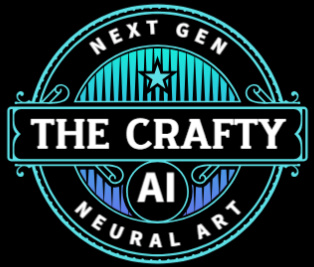www.thecraftyai.com
Perplexity AI
Perplexity AI, founded in 2022 by Aravind Srinivas, Denis Yarats, Johnny Ho, and Andy Konwinski, has emerged as a transformative force in the realm of AI-powered search and digital assistance. Unlike traditional search engines like Google or DuckDuckGo, Perplexity positions itself as a conversational AI assistant, leveraging large language models (LLMs) to deliver direct, natural language responses with source citations. As of July 2025, the company is valued at $18 billion, reflecting its rapid growth and widespread adoption. This article explores the features, applications, challenges, and future potential of the Perplexity AI Assistant, including its innovative Comet browser.
Conversational Search and Real-Time Answers
Perplexity AI redefines search by providing concise, accurate answers rather than a list of links. Powered by advanced LLMs, it processes queries using natural language processing (NLP) and integrates real-time web search to deliver up-to-date information. Users can ask follow-up questions, and the assistant maintains context, making it ideal for in-depth exploration. All responses include citations, enhancing transparency and verifiability.
Multimodal Capabilities
The Perplexity Assistant is multimodal, supporting text, image processing, and voice interactions. Users can query images (e.g., identifying objects or media on screen) or use voice commands for hands-free operation. The Pro version offers access to advanced models like DALL-E 3 and Stable Diffusion XL for image generation, alongside text and basic code generation, rivaling tools like ChatGPT and Claude.
Cross-App Integration and Agentic Functionality
Launched in January 2025 for Android (with iOS support added in April 2025), the Perplexity Assistant integrates with apps like Spotify, Uber, and Gmail to perform tasks such as booking rides, playing music, or drafting emails. Its ability to maintain context across actions allows seamless task chaining, such as researching restaurants and making reservations. However, limitations exist, like inconsistent app support (e.g., Slack or Reddit) and restricted access to sensitive data like calendars.
Comet: The AI-Powered Browser
In July 2025, Perplexity introduced Comet, a Chromium-based browser with an embedded AI assistant. Initially exclusive to Perplexity Max subscribers ($200/month), Comet enables agentic tasks like summarizing web content, shopping via Instacart, or managing emails. Its assistant can navigate tabs, perform real-time research, and execute actions like adding items to carts, making it a powerful tool for streamlining workflows. However, privacy concerns and limited initial access have sparked debate.
Applications and Use Cases
Perplexity’s versatility caters to diverse users:
Casual Learners: Quick answers for trivia, recipes, or general knowledge, often with conversational depth.
Professionals: Research assistance, financial analysis using real-time stock data from Financial Modeling Prep, and project organization via Perplexity Spaces.
Developers: Basic code generation and API integration via Sonar, launched in January 2025, for enterprise applications.
Shoppers and Planners: Agentic tasks like creating grocery lists or booking travel, with Comet enhancing automation.
User feedback highlights its efficiency, with one user noting it found a specialist accepting their insurance, a task Google couldn’t handle. However, it struggles with complex research or nuanced analysis, requiring human validation.
Legal and Ethical Issues
Perplexity has faced significant criticism for alleged copyright infringement. In June 2024, Forbes accused Perplexity of plagiarizing a proprietary article. The New York Times and Dow Jones filed lawsuits in October 2024, alleging unauthorized content scraping and misattributed quotes. Perplexity’s CEO, Aravind Srinivas, defended the platform, claiming it aggregates rather than plagiarizes, but the controversies underscore ethical concerns in AI training data.
Technical Limitations
While powerful, Perplexity has flaws. Its assistant struggles with long-horizon tasks, deep research, and certain app integrations (e.g., calendar access requires workarounds). Some users report inconsistent performance, such as freezing or poor multilingual support on Android. Battery drain and VPN issues have also been noted.
Future Prospects
Perplexity’s vision is ambitious. Srinivas predicts AI assistants like Comet’s could replace roles like recruiters or executive assistants within months, automating tasks like scheduling or follow-ups. Partnerships with Motorola, PayPal, and potentially Samsung signal broader device integration. However, competition from Google’s Gemini, OpenAI’s Operator, and emerging browsers like Dia and Opera’s AI tools poses challenges.
Perplexity’s focus on accuracy and trust, with cited sources and real-time data, positions it as a leader in reliable AI. Yet, addressing privacy concerns, improving app integration, and resolving legal disputes will be critical for sustained growth.
Conclusion
Perplexity AI Assistant redefines how we interact with information, blending search, task automation, and multimodal capabilities. Its Comet browser pushes boundaries by integrating AI into browsing, offering a glimpse into an AI-driven future. While its rapid rise to a $18 billion valuation reflects its potential, Perplexity must navigate legal, ethical, and technical hurdles to maintain its edge. For users seeking quick, reliable answers and seamless task management, Perplexity is a compelling alternative to traditional search engines and chatbots, but it remains an assistant, not a replacement for human judgment.
© 2025. All rights reserved.

